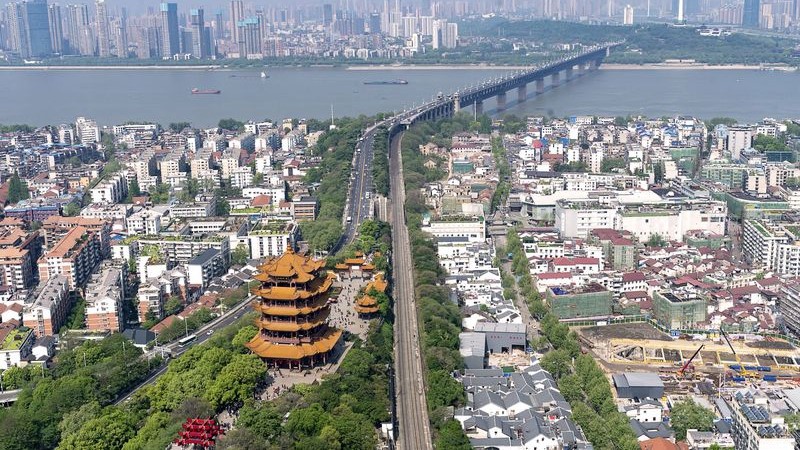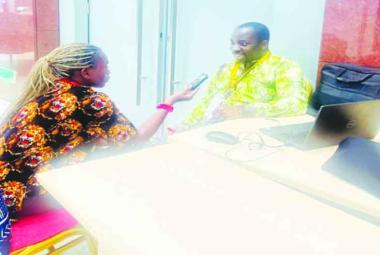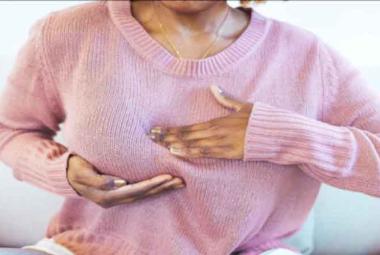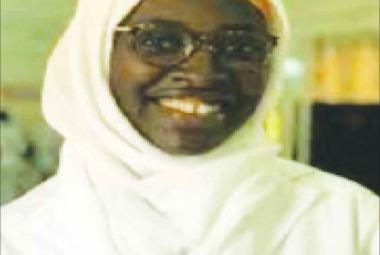In the season of cherry blossoms, Wuhan, the city first hit by the coronavirus outbreak, is entering a reset mode. As new cases subside, the months-long lockdown in Wuhan was lifted on April 8, bringing a glimpse of hope in the global battle against COVID-19.
Hard-won progress
Wuhan, which emerged as the ground zero of the coronavirus outbreak last December, has borne the brunt of the scourging pandemic. After a spike in confirmed cases in January, China took unprecedented steps to lock down Wuhan and surrounding areas on January 23.
During the past 76 days, China has undertaken aggressive measures to curb the spread of the virus. Two new hospitals were built in a matter of 10 days to take in patients. A total of 42,000 doctors and nurses came to support Wuhan from across China. Military forces were mobilized to the front line. Ordinary people in Wuhan also made sacrifices to observe the stay-at-home order to prevent cross infections.
Thanks to the dramatic containment measures, Wuhan and the wider Hubei area were able to weather the worst times and flatten the curve in early March. Hubei first reported zero new infections on March 19. After sustaining a low level of cases, China is finally able to ease the quarantines at a measured pace.
The Wuhan lock-down has played a crucial role in China's hard-won progress in the virus control effort. The latest research published in The Science magazine pointed out that the lock-down also bought valuable time for the global battle against the pandemic.
The lifting of the lock-down in Wuhan offers a glimpse of hope to the world. Despite variations across countries, Wuhan's experience shed important light for cities with similar fates.
The first takeaway is better early than late. The mass lockdown in Wuhan raised initial doubts and even criticisms. But Wuhan's suffering showed the world how ferocious the virus is and how inadequate our medical capacity is in times of major public health emergencies. An early and decisive intervention is a necessary and effective way to contain the virus.
The second is one for all and all for one. In the midst of outbreak, Wuhan found itself overwhelmed by an explosion of cases, shortages of hospital beds and medical workers, and a crunch on essential medical supplies. Such a critical situation overburdened the local medical system. Only with nationwide mobilization and policy coordination could a metropolis of 11 million get over the worst crisis in less than three months.
The third is the right to life comes first. The controversy surrounding the lockdown pinpoints two questions, namely economic cost and loss of freedom. It is difficult to choose between cherished values.
But the Wuhan experience shows that accepting temporary economic loss and freedom curtailment saves lives and prevents bigger tolls in terms of economic growth and individual freedom.
Now, with the lifting of the lock-down, Wuhan again will serve as a window to other hard-hit places across the world on how to adjust after the pandemic and how to prepare for the future.
As Wuhan gets back on track, China is turning an important page in its battle against COVID-19. But we need to be cautiously optimistic, since it is still too early to pronounce a post-COVID-19 era.
The origin, transmission and fatality rate of the virus are still unknown, vaccines and cures have a long way to come, and risks of asymptomatic transmissions remain. With the coronavirus raging in other parts of the world, China is facing a dual task of guarding against a domestic outbreak and preventing importations of the virus from overseas.
Thus, lifting the lock-down does not mean lifting containment measures. We need to stay vigilant to prevent another major outbreak in China. Rigorous monitoring and active testing will remain in place in order to prevent and prepare for any sporadic outbreaks. Residents will continue to wear face masks and avoid crowded places.
Change will not come overnight. After experiencing such a trauma, more needs to be done to reassure the public about the safety of moving around, to boost confidence and to heal the psychological wound.
Beside maintaining mitigation efforts at home, China is also keen on international coordination. Only by synergizing containment efforts, coordinating critical medical supply and cooperation on vaccine and drug development, can we truly triumph over the pandemic.







